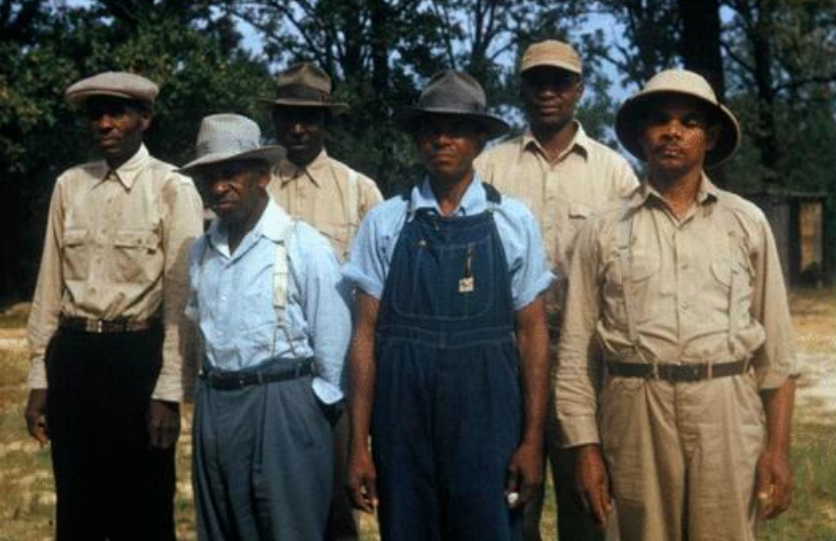Oregon is widely seen as a progressive state. It was the first to permit physician-assisted suicide. The state has voted for the Democratic candidate in every presidential election since 1988. It was rated the third most liberal state by Business Insider in 2103. And a recent Gallup poll showed that now more people self-identified as liberals than conservatives for the first time.
But Oregon is about to take a giant regressive step – all the way back to 1932, when the "Tuskegee Study of Untreated Syphilis in the Negro Male," one of the great shames in the history of the US, began in Alabama. The study, which was initiated by the United States Public Health Service (now the United States Department of Health and Human Service) was designed to study how untreated syphilis impacted black men, who thought that they were receiving free healthcare from the government. What made this 40-year program especially shameful was that the government fooled these men into thinking they were being treated for the infection (1), when instead, they were given only aspirin or mineral supplements as placebo and observing them to see how their disease would progress.

Six members of the Tuskegee Study. Photo: National Archives
Although the circumstances are different, the malevolent nature of the Tuskegee and Oregon experiments are similar - subjecting people to unethical "treatment" (or lack thereof) simply because they are poor and powerless. Yet, in some ways, what Oregon is doing now - banning the use of long-term opioid therapy in Medicaid patients - could in some way be considered even worse, because we are now six decades past the dawn of the civil rights movement. Yet the state is seriously contemplating conducting another unproven, untested, mass experiment on the poor, disabled, or ill.
The American Council's Dr. Chuck Dinerstein, a retired surgeon, amateur historian and our resident philosopher had this to say about Oregon's pending action:
"The thinking behind this plan must be channeling the Tuskegee syphilis experiments. Oregon is planning to implement an unproven therapeutic approach, applied without consent, to a disadvantaged, vulnerable population. What can they possibly be thinking?
In this scenario, if patients are receiving Medicaid, they will no longer get prescriptions for opioid analgesics, regardless of their wishes or those of their physician. Oregon Health Plan patients will have no autonomy. They will have no choices, since this will be is the only insurance plan available to most of them, while people having either private or Medicare coverage will be under no such restrictions. How does this fit with the Progressive nature of Oregon's citizens?
It is now 85 years after the beginning of the Tuskegee study and Oregon wants to be next, forcing poor pain patients to go without pain relief, use alternative drugs and/or totally unproven methods of pain control (maybe even quackery) regardless of their illness or conditions.
I spoke with Dr. Dan Laird, M.D., J.D., who is a pain management physician and attorney in Southern Nevada. Laird was not at all impressed with some of the alternatives.
"Acupuncture can help with some painful conditions but it’s not a long-term solution for most patients. Massage is effective for many pain patients but it’s expensive and in most States, Medicaid will not pay for ongoing long-term massage therapy. There is very little convincing evidence that Aromatherapy is helpful except as an adjunct to assist in relaxation. TENS (transcutaneous electrical nerve stimulation ) units offer limited benefit. Spinal cord stimulators do offer some benefit for certain conditions, however, they are very expensive. Intrathecal pumps are not an alternative to opioids since the infused drug is usually morphine. Such pumps are expensive and have numerous complications. Non-steroidal anti-inflammatory medications are a staple of pain management but they are contraindicated in some patients, including those at risk for GI bleeding and those with kideny disease."
Laird added (emphasis mine):
"There are numerous patients for whom low-dose non-escalating opioid therapy, as part of a comprehensive pain management program, is the only practical, realistic solution. The Oregon proposal is unethical in that it ignores patient autonomy and informed consent. Additionally, it requires health care providers to practice below the standard of care. Other than being unethical malpractice, the Oregon Experiment is a fantastic idea!"
It is almost incomprehensible that the Tuskegee experiment did not end until 1972 - a forty-year permanent stain on the pages of US history and a prime example of abuse of people who had no say in their own care. Such an abomination could never happen again in a civilized society, right?
But, is what may happen in Oregon all that different? Just as the Tuskegee men were denied treatment for their disease, the poor citizens of Oregon will be denied proper medical treatment regardless of merit if the Oregon Vicodin Vigilantes get their way (2). Disgusting.
I guess cloudy skies can lead to clouded thinking.
Next: Who's in charge and why are they doing this?
NOTES:
(1) There was no effective treatment for syphilis until 1947 when penicillin was recommended to treat the infection. Yet it was not until 25 years later when the experiment was stopped after the Associated Press broke the story.
(2) As I have asked before, where is the ACLU during this attack on pain patients? While the rights of the poor, pain-ridden people in Oregon are about to be squashed the organization seems to be more concerned about who is using which bathroom.




